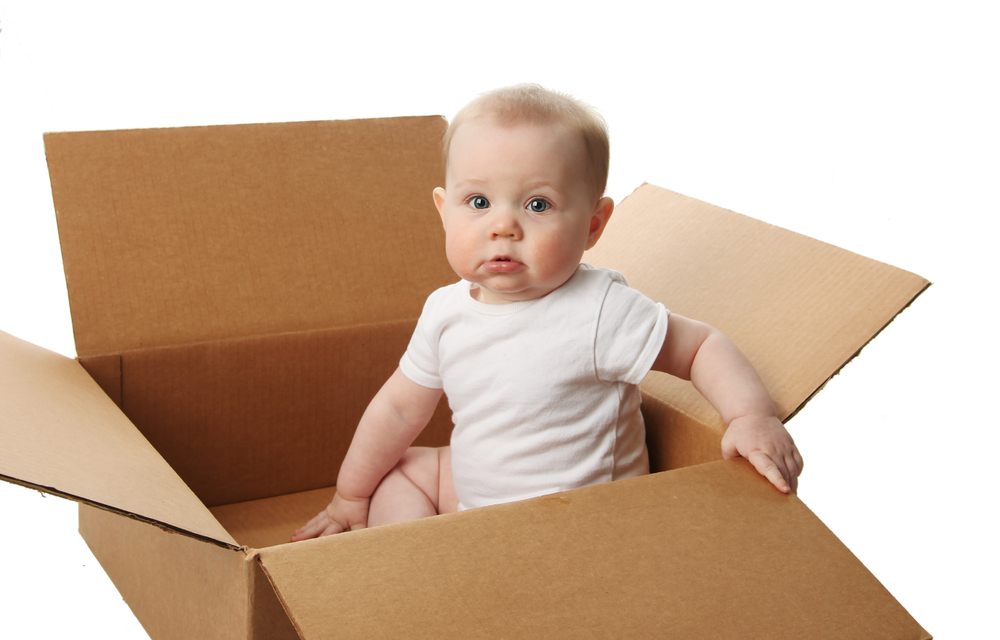
How Moving Can affect a Child’s Sleep
For most of us, moving does NOT top our list of things we enjoy. Moving creates a multitude of things to worry about, after all. Once you’ve found a new place to buy or to rent, you’re still not even close to done. What about transferring your mail? Or shutting off your utilities? And if your move is an international one, the list gets even longer — what about work visas and passports? Which possessions should you sell and which should you ship?
Moving is not for the faint of heart, that’s for sure!
But what about our kids? Moving is a stressful event for an adult; is it stressful for your baby? What about for your toddler or preschooler? The answer is yes — moving is just as stressful for children as it is for adults. And that stress can cause some big sleep problems for your baby or toddler.
Why Moving Affects Babies, Toddlers, and Preschoolers
According to a report by the Academy of Child and Adolescent Psychiatry, “Moving to a new community may be one of the most stress-producing experiences a family faces.” As adults, we tend to stress over the logistics of the move itself — selling the house, packing the belongings, etc. While young children won’t stress about those details, they will feel the anxiety that such an enormous change causes. Babies, toddlers, and preschoolers tend to thrive with predictable routines; when those routines are disrupted, it can make them anxious, particularly if they are slow to adapt or sensitive. And of course, moving is totally disruptive — new room, new house, new school/daycare, new friends, etc.
How Moving Affects Babies, Toddlers, and Preschoolers
For babies, the stress of moving is directly related to a disruption in routine, and there is no emotional or psychological element involved. For toddlers and preschoolers, however, it’s a different story. Toddlers and preschoolers feel the stress of a move the same way adults do, but they lack the vocabulary and self-awareness to articulate those feelings. Some of the ways toddlers and preschoolers may express their anxiety include:
How Moving Affects Naptime and Nighttime Sleep
All phases of the moving process (before, during, and after) can impact a child’s sleep:
Before the move:
Stress always hinders sleep, for both children and adults. And since moving tends to be a very stressful process, it can disrupt sleep in a big way. You may find that your “normal schedule” is far from normal as you work to house-hunt, pack, and sort out the details of your move. This can lead to short naps or missed naps for your child.
In addition, the stress of the upcoming move might cause your toddler or preschooler to have frequent nightmares, or to begin grinding her teeth at night, two sleep issues that are known to be caused by stress.
On moving day:
When the time for the move finally comes, everyone’s bound to be more sleepless than usual! This is especially true if your move is cross-country or international and will take a few days of traveling to complete. During those days, your children may have to sleep in hotel rooms, or even on an airplane. Unfamiliar settings like this certainly don’t encourage sleep, and you’ll likely find your child waking more frequently, or even refusing to lie down and sleep for naps and at bedtime.
After the move:
Once you actually get to your new place, the unfamiliarity of your surroundings may cause your child to wake frequently, or to resist going to sleep at all. This is particularly true if you use the move as an excuse to redecorate and end up purchasing your toddler a new bedroom set, or if you paint your preschooler’s room a new color. That’ll only add to the unfamiliarity of the new room.
In addition, your new home may be associated with new noises. If you’ve moved to the city, for example, you may have more traffic noise to contend with. And moving to the country doesn’t necessarily mean peace and quiet — when my husband and I moved into our first house (a rural little ranch), it was the middle of summer, and the bug noises at night were deafening!
Finally, if you’re moving cross-country or overseas, your child’s sleep challenges may be extra difficult. You have all of the above factors to contend with PLUS the jetlag that comes with traveling across time zones. Even a one or two hour time difference can be hard on very young children!
!!! MAKING THE WORLD BETTER ONE MOVE AT A TIME !!!
